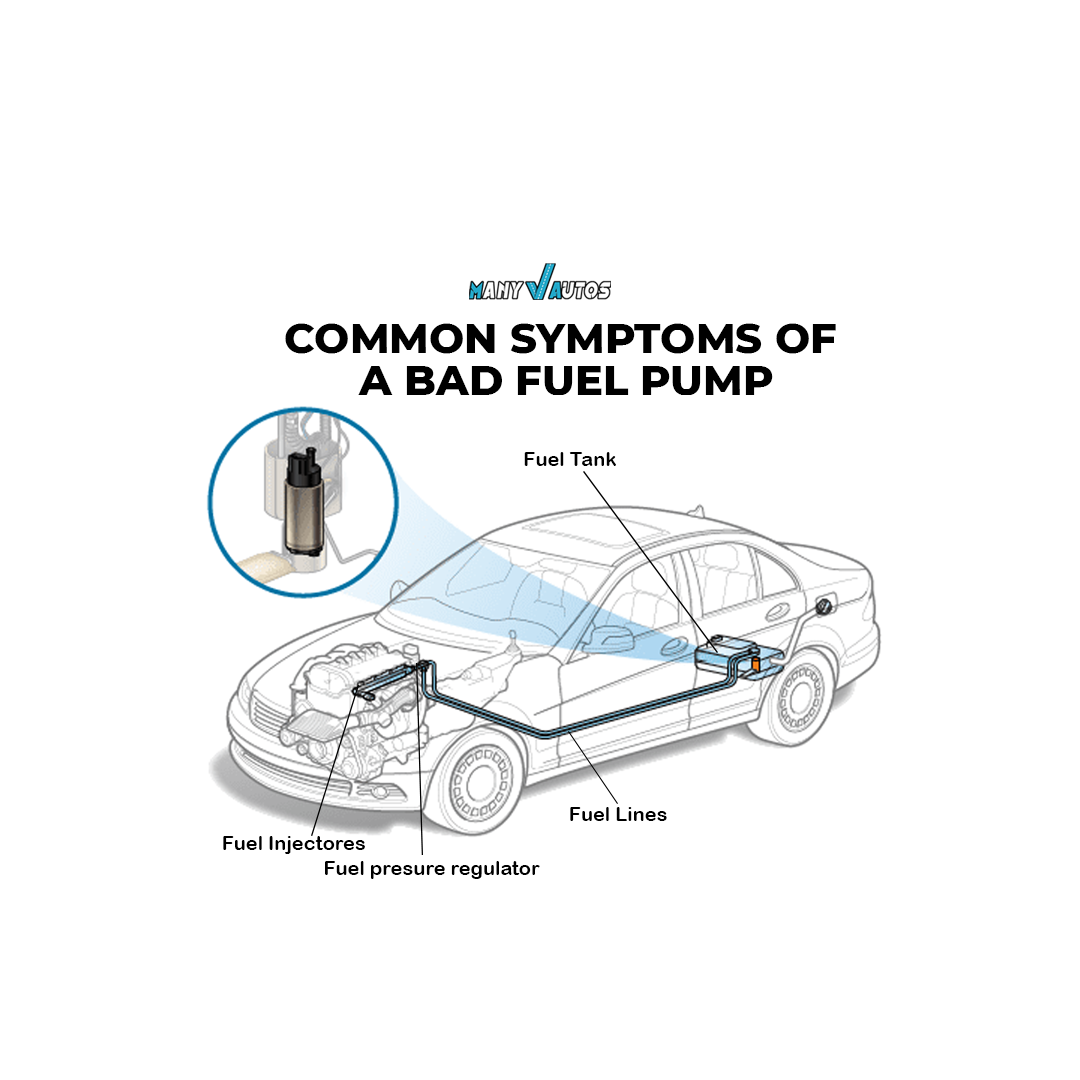
8 Most Common Symptoms Of a Bad Fuel Pump
A fuel pump can be damaged or fail for various reasons, such as the constant use of polluted or unclean fuel or poor-quality fuel. Due to the importance of a fuel pump in a car, several things could happen if your fuel pump fails. The usual signs of an unhealthy fuel pump can be the check engine light appearing, hiccups backfire, misfires, and performance issues.
Following is a detailed list of the 8 most common symptoms of a bad fuel pump.
Car experiences hiccups
If the accelerator pedal is pressed and it feels like that your car has hiccups, this could mean you may have a problem with the fuel pump. The fuel pump may be throttling due to low-grade fuel, or the fuel pump may not be generating enough pressure to push the fuel forward into the system.
Misfires
An unsatisfactory supply of fuel to the combustion chamber will not create enough chamber excitement to cause an explosion. No combustion means that the engine will not start at all or you will find that it takes longer than usual time to reach ignition. If you experience that your car has misfires or sounds louder than normal at idle (normally compared to a tractor), you possibly have low fuel pressure due to a faulty fuel pump.
Sudden engine shutdown or no starting condition
The engine needs fuel to start and function. If a fuel pump is unsafe, the engine will not get any fuel. If your engine does not start at all or are experiencing sudden engine shutdowns while driving, there might be a problem with the fuel pump. If this continues to occur on a regular basis then it is vital to arrange a meeting with your local car mechanic.
Backfires
Not a correctly functioning fuel pump can give an irregular amount of fuel to the engine. Due to this, you can experience misfires because of the too low fuel amount. The engine can also get too much fuel, and this will result in unburned fuel in the exhaust pipe and this is what causes backfires from the exhaust pipe.
Check engine light illuminates
Recent cars are full of sensors that can identify several problems as soon as they occur. Within them is a fuel pressure sensor that is quickly measuring the fuel pressure. If an irregularity is discovered, the sensor sends a signal to the ECU (also known as Electrical Control Unit), which lights up the check engine light. You can easily check the error code displayed by the Check Engine Light through certified car workshops near you or search online for book online car repair service where you will be able to find a trained technician that can carry out a full car diagnostic to determine what is wrong and guide you through the repair and maintenance required to resolve the issue.
Thick black or white smoke from the exhaust
Rarely recent cars emit black smoke from their exhaust unless they are powered by diesel fuel. If your petrol car emits smoke, then there is usually engine damage. One of the reasons for black or white smoke is a malfunctioning fuel pump, making your engine get a rich fuel mixture. In most cases, a bad fuel pump is giving a lean mixture, so this is not a common one.
Turbocharger underperforms
Not all cars have a turbocharger. Turbochargers work by compressing air to rotate a turbine effect that delivers extra power to the engine. Turbochargers need time to reel air (this time is usually called turbo lag). If you feel that there is a lot of turbo lag, then the fuel pump could be a problem.
Spark plugs will die sooner
A faulty fuel pump interferes with the internal mechanisms of the engine. Sometimes the smallest damage occurs in the cylinder itself and results in the smallest components taking the greatest damage. In other words, the spark plugs may die before their lifespan. If you feel that your spark plugs need to be replaced sooner than normal, then you may be dealing with a faulty fuel pump.